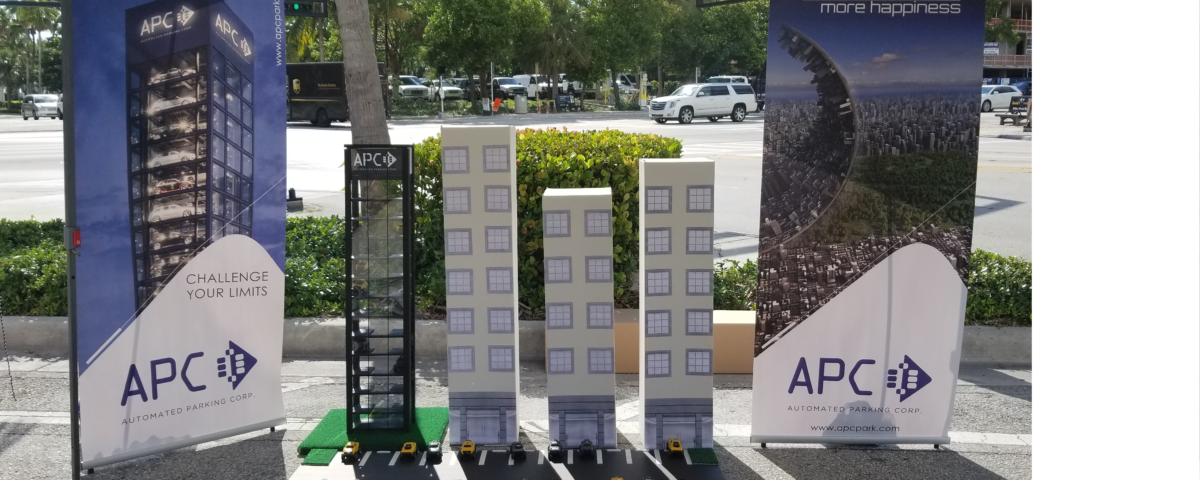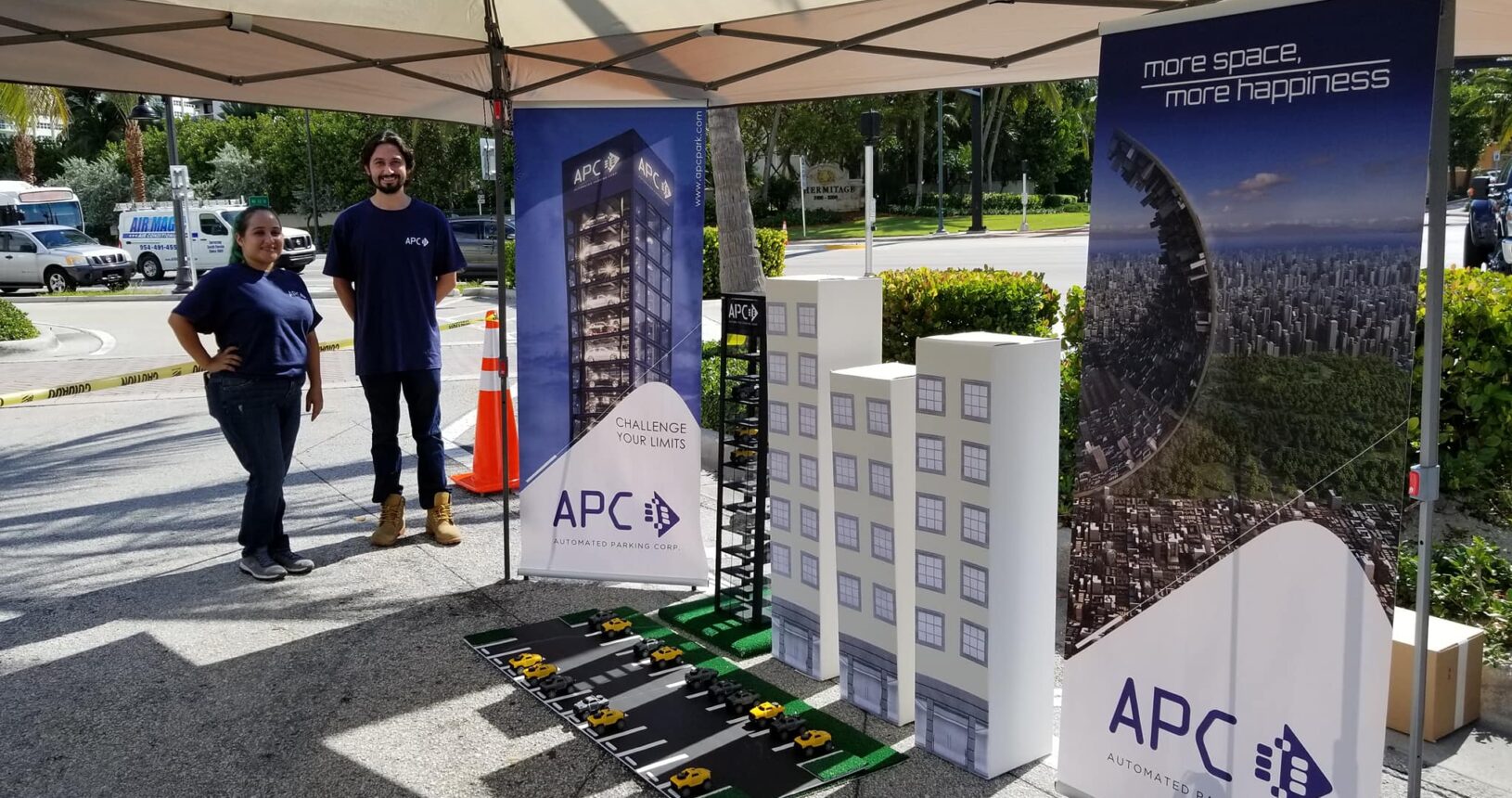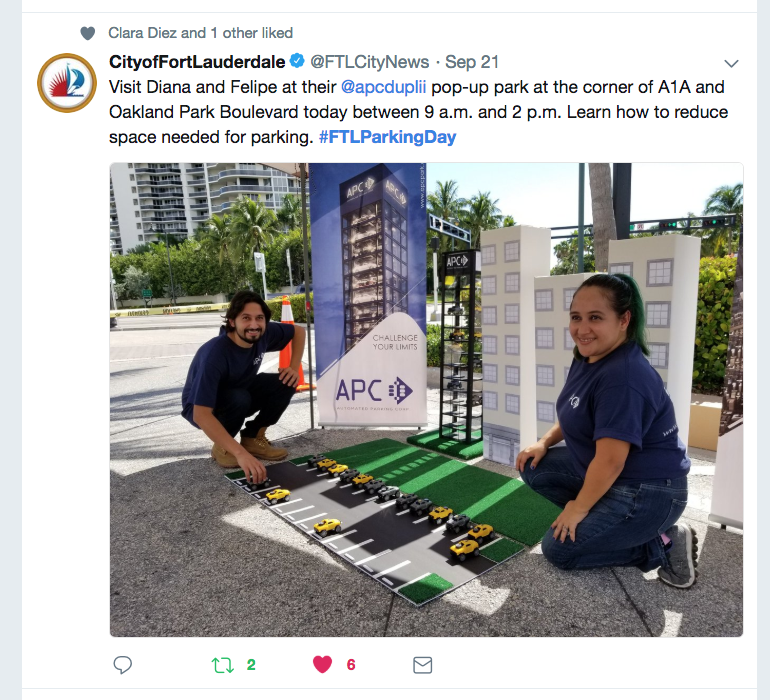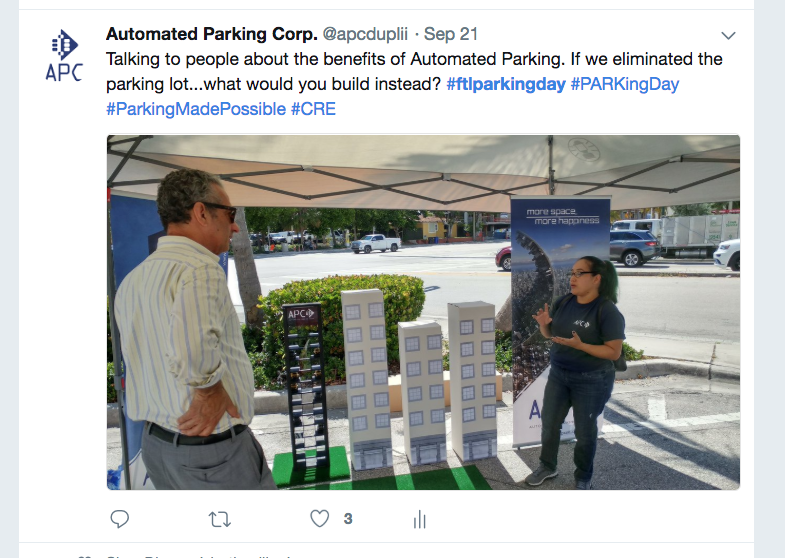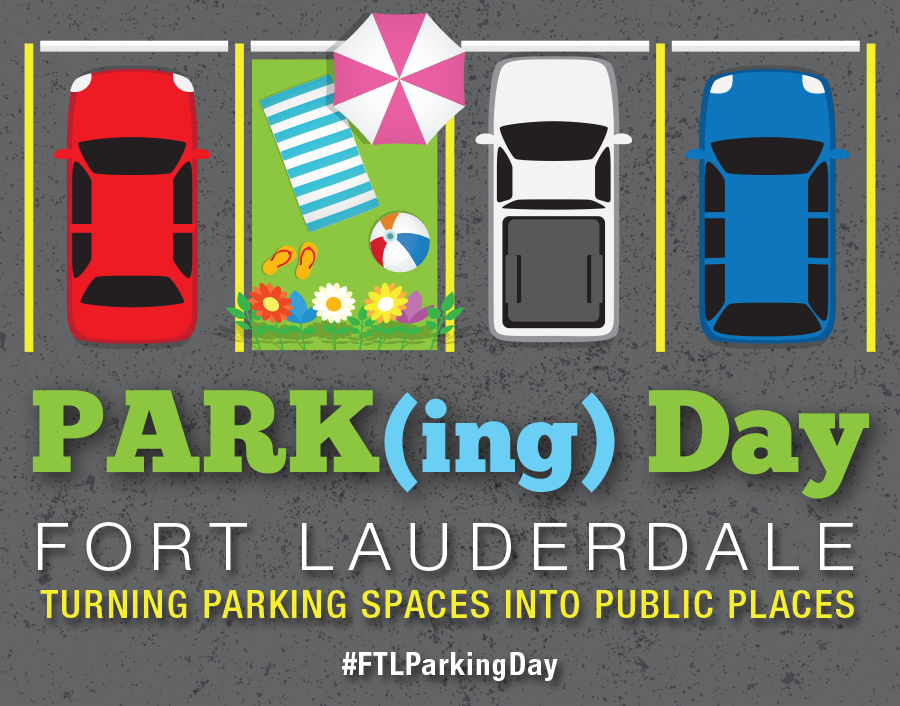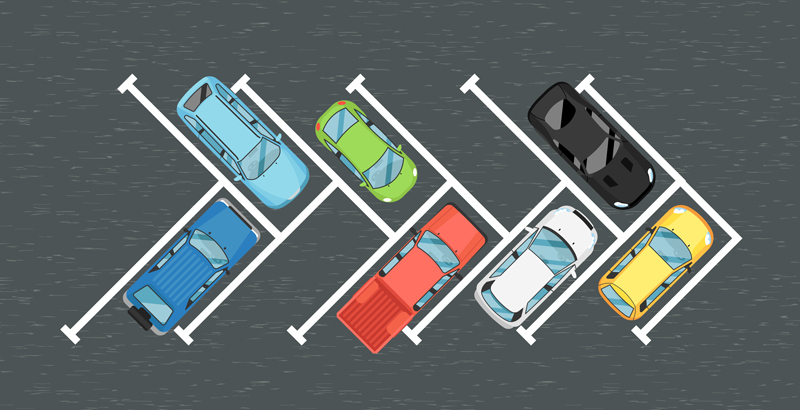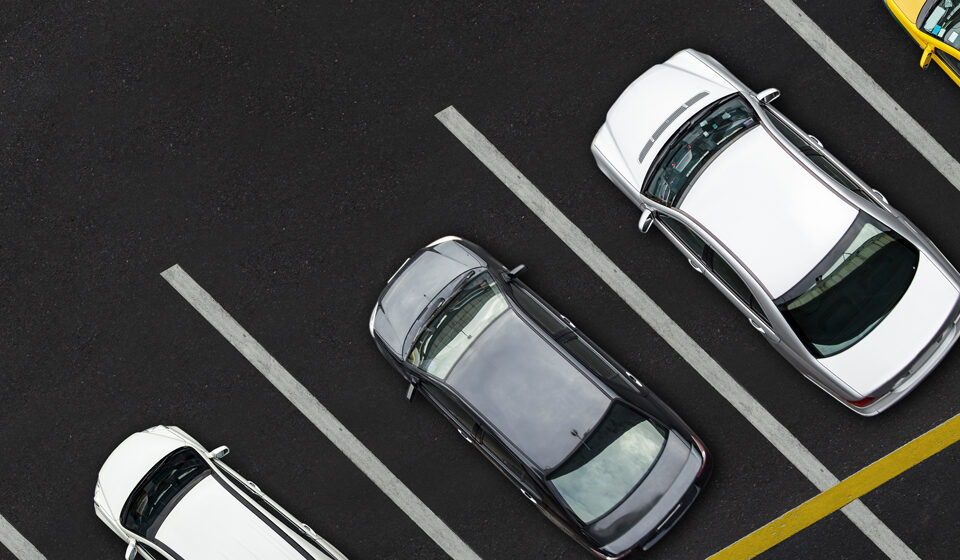
From car-centered to driverless cities: bridging the gap
November 12, 2018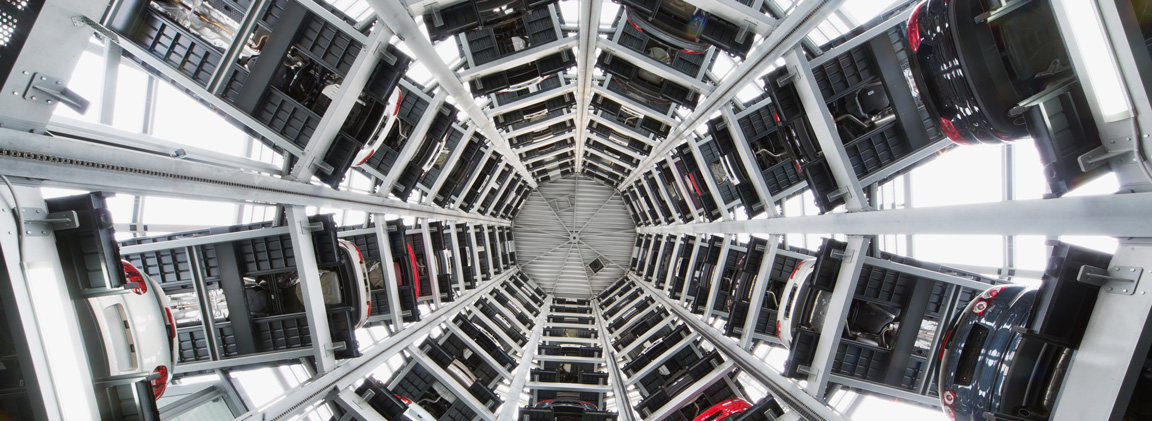
Demystifying Automated Parking
November 14, 2018Automated Parking Corp. turns an on-street parking space into an opportunity for local residents to “design their own city”
This past September 21st, communities, businesses and cities around the world gathered to celebrate “PARK(ing) Day,” an open-source event held every year on the third Friday of September. Automated Parking Corporation (APC) was among the many individuals, private companies and public organizations that transformed gray on-street parking stalls into more livable and creative public spaces. The initiative seeks to raise awareness about the way we currently use land and about the need for more green open spaces in dense urban centers.
Upon learning about this worldwide initiative, APC felt immediately compelled to participate. “It was a perfect match,” said APC’s CEO Marcos Radonic. “The vision of Park(ing) Day fully aligns with APC’s own vision to significantly reduce parking footprints, promote better land use and reduce pollution caused by vehicle emissions”.
APC’s temporary “pop-up” installation consisted of a scaled replica of a common city setting; including buildings, their required parking surface and 24 toy cars occupying stalls on the lot.
This past September 21st, communities, businesses and cities around the world gathered to celebrate “PARK(ing) Day,” an open-source event held every year on the third Friday of September. Automated Parking Corporation (APC) was among the many individuals, private companies and public organizations that transformed gray on-street parking stalls into more livable and creative public spaces. The initiative seeks to raise awareness about the way we currently use land and about the need for more green open spaces in dense urban centers.
Upon learning about this worldwide initiative, APC felt immediately compelled to participate. “It was a perfect match,” said APC’s CEO Marcos Radonic. “The vision of Park(ing) Day fully aligns with APC’s own vision to significantly reduce parking footprints, promote better land use and reduce pollution caused by vehicle emissions”.
APC’s temporary “pop-up” installation consisted of a scaled replica of a common city setting; including buildings, their required parking surface and 24 toy cars occupying stalls on the lot.
The “Design your Own City” game promoted by APC consisted of having visitors relocate the 24 toy cars in a model version of APC’s Automated Parking Tower, which was able to park those same 24 cars in the space of three. Once the “surface lot” was vacated, visitors lifted the board and uncovered a patch of artificial grass of the same dimensions. The patch of grass represented the newly reclaimed space that was not longer devoted to parking. APC then asked visitors to answer the question “what would you build in your extra space?”
Answers included parks, dedicated bike lanes, athletic courts, hospitals, churches, and even a beer stand.
Visitors were amazed to discover that automated parking solutions offer a real opportunity to turn the vision of PARK(ing) Day into an everyday reality, adding that they would like to see “more of these towers in the city”.
“We all need to re-think our public space. Social transformation requires the engagement and participation of every sector of society. APC understands the importance of spreading the word - that to this date was limited to architects, developers and urban planners - across all of these sectors,” concluded Marcos Radonic.
According to the PARK(ing) Day website, all of these interventions support the original vision of PARK(ing) Day: to challenge existing notions of public urban space and empower people to help redefine space to suit specific community needs.
Answers included parks, dedicated bike lanes, athletic courts, hospitals, churches, and even a beer stand.
Visitors were amazed to discover that automated parking solutions offer a real opportunity to turn the vision of PARK(ing) Day into an everyday reality, adding that they would like to see “more of these towers in the city”.
“We all need to re-think our public space. Social transformation requires the engagement and participation of every sector of society. APC understands the importance of spreading the word - that to this date was limited to architects, developers and urban planners - across all of these sectors,” concluded Marcos Radonic.
According to the PARK(ing) Day website, all of these interventions support the original vision of PARK(ing) Day: to challenge existing notions of public urban space and empower people to help redefine space to suit specific community needs.
Automated Parking Corp. turns an on-street parking space into an opportunity for local residents to “design their own city”

